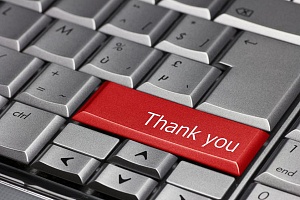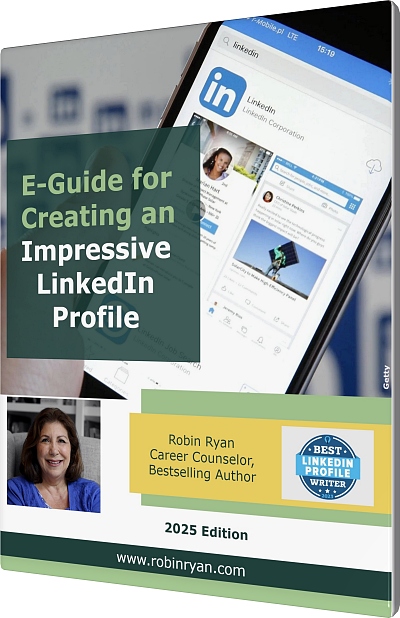
RobinRyan.com · robin@robinryan.com · 425.226.0414
Message from Robin
During a job interview there is much to keep in mind as you respond to questions. If you are not prepared, it can be easy to make mistakes that make the wrong impression and take you out of consideration for that job.
Read my recently published Forbes article below to avoid four of the top interview mistakes I commonly see job hunters make.
Robin
Top Job Interview Mistakes That Can Cost You The Job

Your resume worked and got you a highly coveted job interview. You’re a strong candidate, excited and hopeful. Then to your ultimate disappointment, you don’t get a job offer. Sarah found herself in this situation.
She was a sales manager who had recently lost her job. Frustrated by her lack of success, she called for interview coaching. Sarah began our conversation by saying, “I’m in sales, but it seems I can’t sell myself. I must be making a major mistake because I’m not being hired. I have all the job qualifications, so I can’t figure out what I’m doing wrong. I’ve lost out on three jobs now, so I’m doing something to turn off the employers. What can it be?”
Many others also face this scenario. They don’t know what they might be saying that prevents them from not getting hired. As I began my interview coaching session with Sarah, it became crystal clear that there were some significant mistakes she needed to correct to change the outcome to land the next job.
Avoid Making The Following Mistakes
You need to avoid making the following mistakes:
1. Fail when answering tough interview questions
When you are under the spotlight, people often give a poor answer that sends the message to the employer that you are the wrong person for the job. You don’t want to get tripped up by these typical but difficult questions. Advanced preparation is the key to handling them like a pro and building the employer’s confidence in your job performance.
List the questions you’ll likely be asked and write your answers. Are you saying something that can make them question whether you might have problems with the work or interacting with others? When you are happy with the response, practice recording yourself answering each one. Listen to the playback. Refine the answer until you are satisfied with how you’ll respond.
Prepare answers to questions like:
- Tell us about a big mistake you recently made.
- What is your greatest accomplishment?
- Explain what you like most about your current/last job, and what did you like least?
- Why should we hire you?
- What is your current salary?
- And, of course, the dreaded, “What is your greatest weakness?”
All job hunters seem to cringe when they hear this weakness question. Yes, this is a super tough one. My article, first published in Forbes, “A New Way To Answer The ‘What’s Your Greatest Weakness?’ Interview Question” will guide you in developing the perfect answer.
2. Stumbled with situational questions
This probing style of questioning is how most candidates make mistakes. It’s designed so the employer can assess how you have performed in the past and also assume you’ll do the same if you work for them. Your answers are very revealing and help the employer make a better, unbiased decision.
Job hunters find situational questions challenging to answer. They skip early details that make the story harder to follow. They fail to paint a clear picture of the situation, leaving out specific details and critical information. This confuses the hiring manager, who gets stuck wondering where this happened or who was involved. By not being detailed and specific upfront the employer often doesn’t catch the rest of your answer.
As you craft your answer, begin the story defining where this happened. For example, “While I was the Director at Mount Vernon Health,” then name and explain who the players are, clearly noting the problem or issue. You would continue saying, “My project manager, Mary, made a costly mistake on the project budget.” Next, show what you did and how you resolved the problem. These upfront details are precise and allow the listener to comprehend your actions. Your work stories should be concise and last no more than 60 seconds.
For examples of creating effective answers to situational questions, read my Forbes article “Ace Your Next Interview Using the STAR Method.”
3. Weak opening
Don’t assume the employer has read your resume thoroughly and carefully when you begin the interview. Many times, they just skim it. As important as this meeting is to you, the employer often shows up distracted, preoccupied, and not paying complete attention at the start. They could be thinking about other work that needs to be done, an employee problem, the last candidate they met, family issues, etc.
In order to grab their attention in those first two minutes, you need a powerful opening to the “tell us about yourself” request. You quickly achieve that goal by using a technique I call the 60 Second Sell. This strategic elevator pitch highlights your top skills, accomplishments, and credentials demonstrating how you would excel performing their job.
Customize your answer to address the employer’s needs. Identify your top five selling points, link them together in a couple of sentences, and you have your 60 Second Sell. This response will get the interview off to a flying start. For a few examples, read my article, first seen in Forbes, “Best Way to Open An Interview To Secure A Job Offer.”
4. No close
When the employer has finished answering all their questions, and you have asked yours, most job hunters say goodbye. That’s a missed opportunity to sell yourself. Assume that the employer may only recall a little about you. We want your top accomplishments, skills, and strengths to be at the forefront of their mind with a fine-tuned closing that ensures that you are perfect for the job.
To conclude say, “Thank you for the opportunity to learn about your position. I’m very interested in this job. In closing, let me summarize what I bring to the position,” and continue making your four or five key points. Then say goodbye. After you leave, the employer fills out a form evaluating the candidate. The last thing they heard were the top reasons to hire you.
This article was originally published in Forbes.
More Articles of Interest
If you found today’s featured article to be helpful, here are related articles by Robin to read (if you have not already done so).
Clinch The Job Writing A Persuasive Interview Thank You Email — As I was finishing up an Interview Coaching session with an over-50 client she asked, “What should I do about a thank you note?… READ MORE »
How To Close An Interview To Land The Job — “How do you end an interview?” asked Ken, an over 50-year-old. “Should I be bold and just say hire me, no one is better? Will I sound too cocky or demanding and lose the job?” Good questions… READ MORE »
Interview Coaching
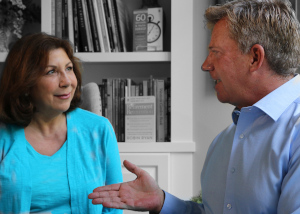
You’ve found a job opening — or maybe the employer found you. The job is promising. You’ve sent your resume. Now you’ve been invited to interview.
Are you ready?
On average 80% of interviewees fail to land the job. Many times, the first 5 minutes make or break your chances.
You need to be ready to make the right first impression. You need to concisely answer hard questions about situations, technical skills, and who you are. You need to open and close strongly.
Robin is just the person to get you ready.
She wrote a #1 bestseller book on how to interview, “60 Seconds & You’re Hired!” She’s interview coached over 3100 job seekers. She’ll role play with you and get you prepared for tough, tricky questions. She’ll offer hiring insights and strategies that make you stand out as the candidate to hire. She’ll guide you on salary negotiations.
To learn more, visit Robin’s Interview Coaching page for details and pricing.
About Robin Ryan
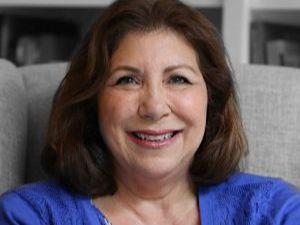
The Los Angeles Times calls Robin Ryan “America’s Top Career Expert.”
Helping her audiences, readers, and clients succeed in their career aspirations is Robin’s passion.
She’s appeared on over 3200 TV and Radio shows including Oprah, Dr. Phil, NBC Nightly News, CNN, and NPR. Her advice has been seen on the pages of the Wall Street Journal, USA Today, New York Times, Los Angeles Times, Houston Chronicle, Forbes, and Money, just to name a few. She is a columnist for Forbes.com.
Robin has had over 30 years of direct hiring experience and has an extensive HR background. HR Weekly named Robin Ryan as one of The 100 Most Influential People In HR for 2021.
A popular trainer and speaker, Robin’s high-energy style has had her in front of over 1200 audiences including for conferences, associations, employee groups, and college campuses.
A #1 Wall Street Journal Bestselling Author, Robin’s career books include:
- 60 Seconds & You’re Hired!
- Over 40 & You’re Hired!
- Winning Cover Letters
- Soaring on Your Strengths
- Winning Resumes
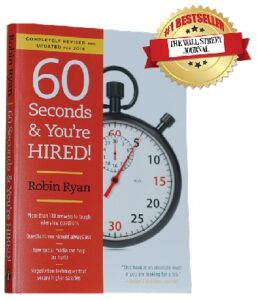
In addition to media appearances, speaking, writing bestselling books, and being a Forbes.com columnist, Robin offers career and job search services to clients nationwide including resume writing, LinkedIn writing, interview coaching, job search coaching, salary negotiation, and career coaching for new college graduates.
Contact and Follow Robin
robin@robinryan.com 425.226.0414 RobinRyan.com
Did someone forward Robin’s newsletter to you?
You’re invited to subscribe and download Robin’s free “E-Guide for an Impressive LinkedIn Profile.”
Updated for 2025, Robin’s E-Guide outlines everything step-by-step that you need to do to develop a profile for making yourself stand out and get discovered on LinkedIn.
